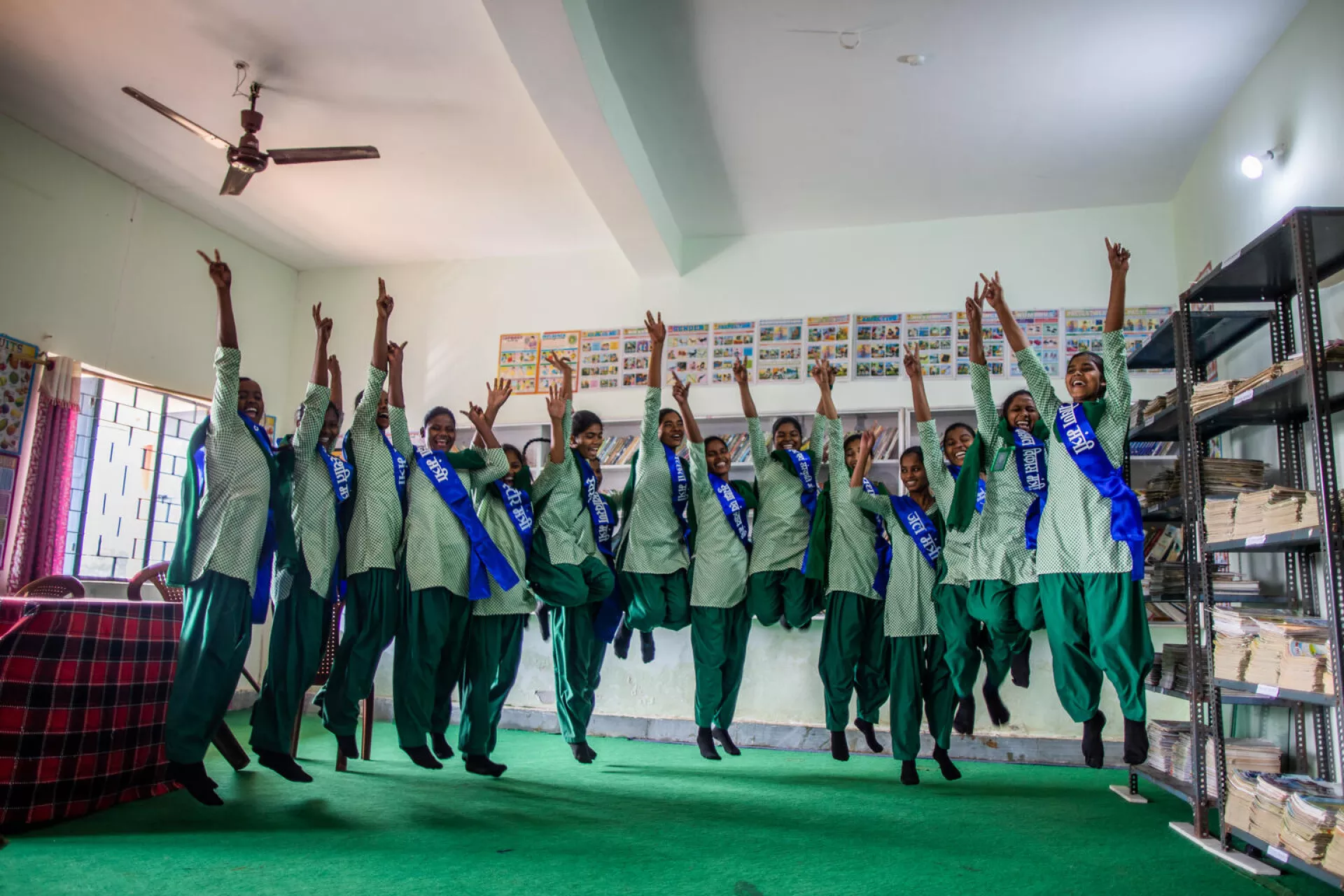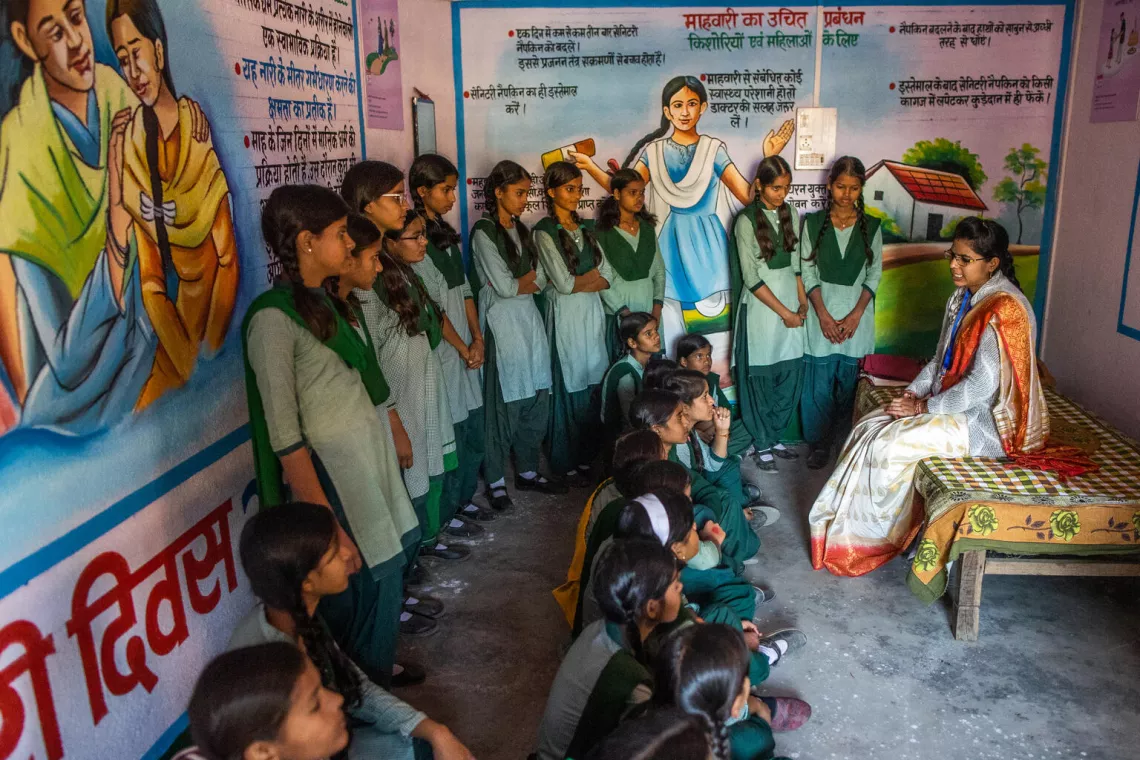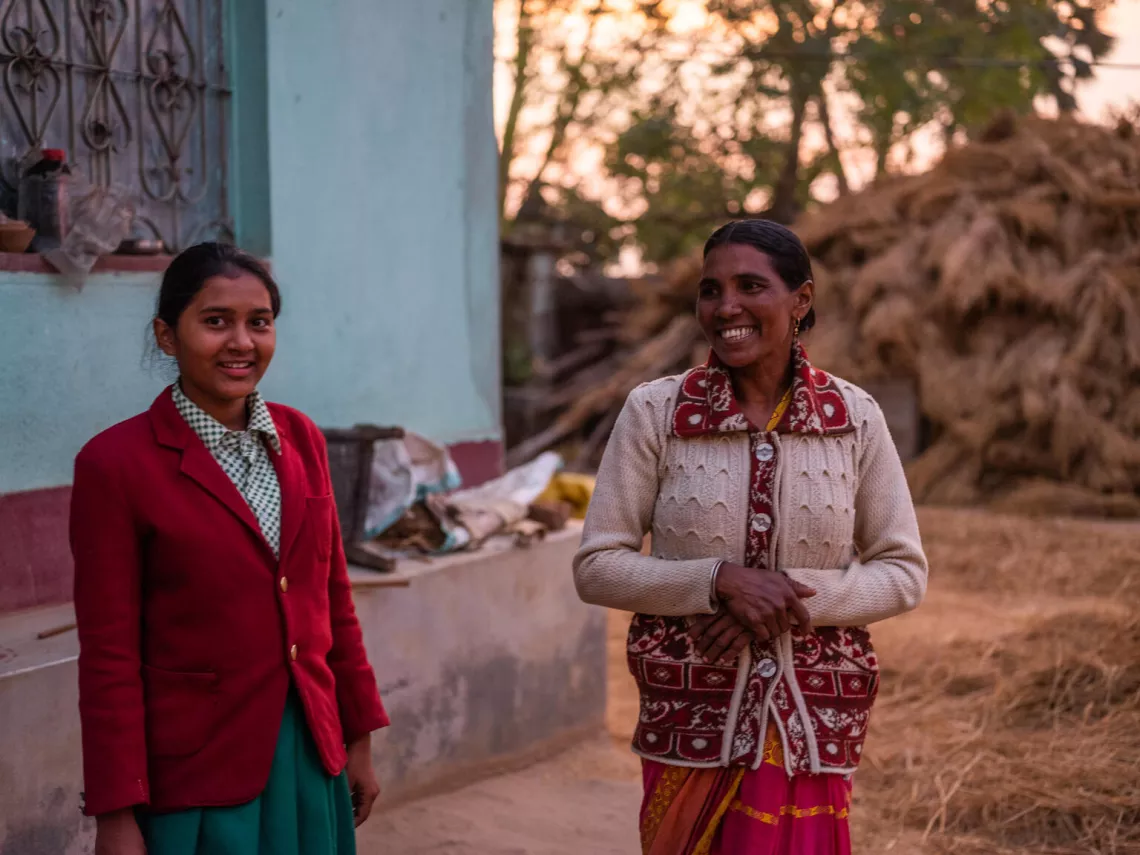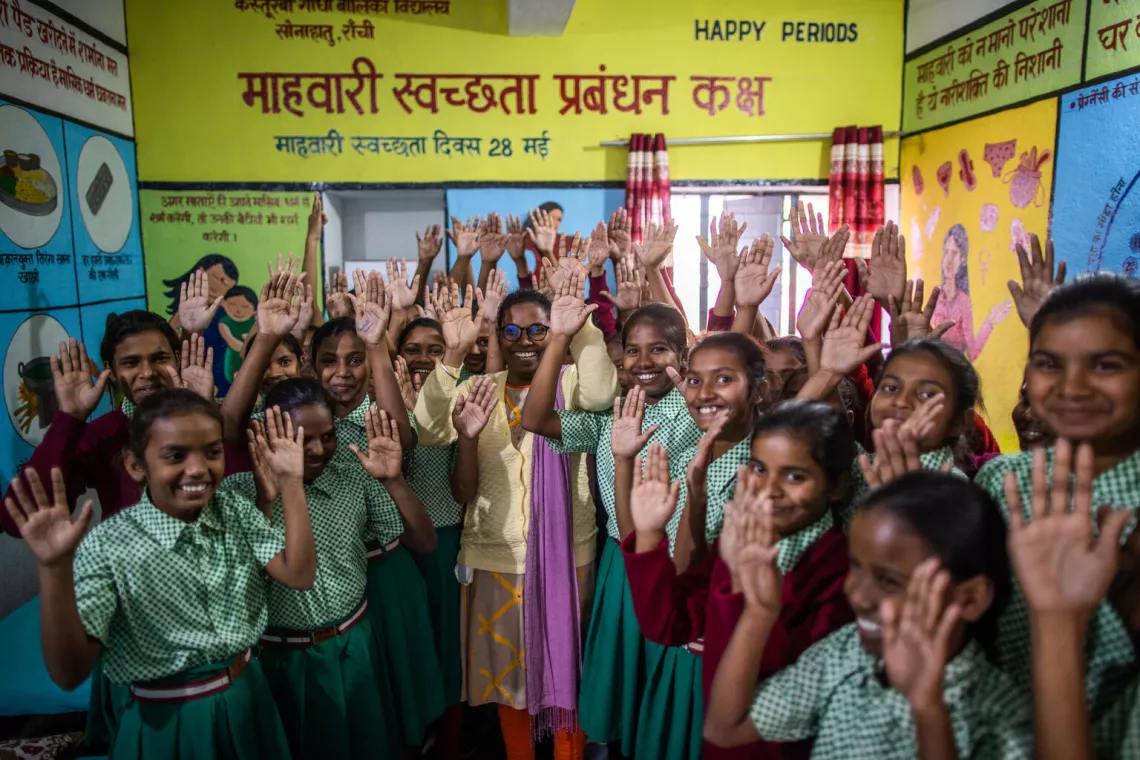
GIRDIDH, India: Priya Kumari is in the 8th grade at UMS Arkhango in Giridih district in the central Indian state of Jharkhand. Priya is one of the million girls worldwide who menstruate every month. She had no idea what was happening when she reached her menarche. She rushed to her school’s nodal teacher, who counselled and handed her a pad. It came as a surprise to her when she returned home and told her mother about it.

“I told my mother that I have used a pad, to which she said never use a pad. She believed that if I threw away a pad in public, I would become infertile for the rest of my life. She had a set of myths and taboos, such as not touching trees, using a cloth to manage menstrual flow, and washing and drying my clothes separately. It was a five-day seclusion in which I was not even allowed to attend school,” Priya explained.
Menstruation marks a new phase of a girl’s life and brings in new vulnerabilities
During menstruation, however, many adolescent girls face stigma, harassment, and social exclusion.
Discriminatory social norms, cultural taboos and lack of basic services such as toilets and sanitary products obstruct proper menstrual health and hygiene management.
In collaboration with partners, UNICEF has been instrumental in establishing MHM labs and constructing incinerators throughout the state. So far, 500 teachers have been trained in MHM, and they are now spreading awareness and bringing about change in even the most remote areas.
When Priya returned to school after 5 days, she immediately shared her story with Ms Pratima Singh, her school’s nodal teacher. Pratima called Priya’s mother and dispelled her myths. Furthermore, Priya persuaded her mother to let her use the pad and encourage her mother to also use it.
She informed her mother about the infections and other risks of cloth and how it is unsanitary for the environment. Finally, she could impart the necessary knowledge to the women in her household.
Namita continued, with a content smile on her face. “It was the first time either of us had seen a pad.”
A mother and daughter who saw pad for the first time together
Namita had a similar story to tell about how she was able to lead her mother on a new path. “My mother tore of her worn cotton saree and asked me to use it when I got my first periods,” said 14-year-old Namita Kumari. Leelmani Devi, a single mother from Salsud village, works in the paddy fields for a living. Namita, her daughter, attends the nearby residential Kasturba Gandhi Balika Vidyalaya in Sonahatu, Ranchi.
“During this time of the month, I was asked to live in secrecy. My mother advised me to be discreet, wash and dry the cloth, or dispose of it in the nearby pond. I was concerned that this would contaminate the entire pond. However, when I told a friend about it, she suggested that we use sanitary pads”, she explained. When Namita arrived at school, she was taken to the MHM lab, where her warden counselled and advised her on proper menstrual hygiene procedures. “Sarojini Mam even counselled my mother about it and advised her to get pads from the village’s anganwadi Kendra,”

The anxiety of changing pads/clothes in school, weakness, emotional swings, and the responsibility of concealing it from the world all have a negative impact on their education and health.
UNICEF, generously supported by partners, is attempting to spread awareness about this issue as widely as possible.
Improvements are being made to MHM labs, incinerators, pad banks, soap banks, and school-based WASH (Water, Sanitation, and Hygiene), including providing new WASH facilities in schools using government resources and training on operation and maintenance.
In accordance with SDG 6, adolescent girls in urban, rural, and remote areas are trained and made aware of the importance of MHM in the major domains of a girl’s life, such as schools, homes, communities, and public places.

Article Originally Published on: UNICEF